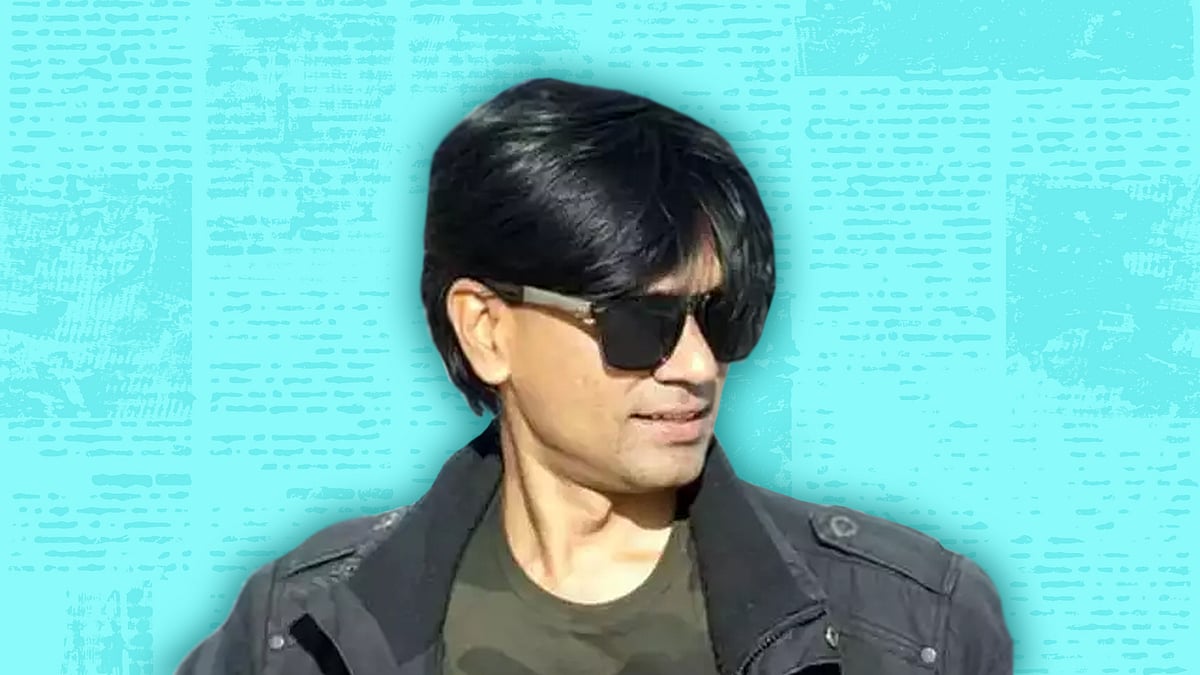‘Power of arrest must be pursued sparingly’: Supreme Court gives Zubair bail in all cases
The court also directed all FIRs filed against the Alt News cofounder to be clubbed and investigated solely by the Delhi police.
Twenty three days after his arrest, the Supreme Court on Wednesday granted interim bail to Alt News cofounder Mohammed Zubair in all six cases registered against him by the Uttar Pradesh police. He had already got interim bail in the case registered against him by the Delhi police for insulting Hindu religious sentiments.
The court directed the Tihar Jail officials to ensure that Zubair is released before 6 pm today, on furnishing bail bonds of Rs 20,000.
Ruling that the “existence of power of arrest must be pursued sparingly by the police”, a bench led by Justice DY Chandrachud also directed that all FIRs filed against Zubair be clubbed together and investigated by one authority, which in this case is the Special Cell of the Delhi police. As a result the Special Investigation Team constituted by the Uttar Pradesh police against Zubair stands disbanded.
The court said the most serious allegations against Zubair concerned his tweets for which he had been subjected to a sustained enquiry by the Delhi police. Hence, the court didn’t “find reason for his deprivation of liberty to persist further”. More so when the allegations in the Uttar Pradesh police’s FIRs against the journalist were similar to those in the Delhi police’s FIR.
Crucially, the top court said the bail shall be extended to any other FIR registered against Zubair in this matter. If an FIR is filed over the same matter, the investigation will be transferred to the Delhi police and the journalist will be entitled to bail.
When Uttar Pradesh’s Additional Advocate General Garima Prashad pointed out that the court had earlier directed Zubair not to publish more tweets, Chandrachud said they could not ask him to not tweet.
“It is like telling a lawyer that you should not argue. How can we tell a journalist that he will not write? We cannot stop him from tweeting. We cannot anticipatorily interdict from exercising his right of free speech,” he said, adding that the journalist would be made answerable if there were any tweets against the law.
One condition of the Supreme Court giving Zubair interim bail in a case filed in Sitapur, Uttar Pradesh, was that he would not post any tweets. A Delhi court too had given him interim bail on the condition that he shall ensure his tweets or retweets or any other material on social media was not touching boundaries of the offences he had been booked for.
Prashad claimed that Zubair was not a journalist or a fact-checker, but someone who posts on social media to “spread venom”. In the guise of fact-checking, she alleged, the journalist promoted malicious and provocative content. She even alleged that Zubair was paid for his tweets, and the more malicious the tweet the more money he got. Prashad didn’t specify who was allegedly paying the fact-checker.
Zubair’s lawyer, Vrinda Grover, argued that the job of someone who debunked false news might draw the ire of some people but the law cannot be weaponized against him.
The top court noted that Zubair was granted regular bail in the Delhi police’s case by a Delhi court on July 15 and that the narration of facts indicated the grant of leave, first by the Supreme Court on July 12 and then by the Delhi court on July 15 still “leaves the petitioner embroiled in a series of proceedings where he is either in judicial custody or where police remand application is pending”.
In Uttar Pradesh, Zubair faces two FIRs in Hathras and one each in Ghaziabad, Lakhimpur Kheri, Chandauli, and Sitapur. In all these cases as well as the one in Delhi, he’s broadly accused of penal offences related to hurting religious feelings and promoting enmity between religious communities.
Zubair can move the Delhi High Court to have all these FIRs quashed, the Supreme Court said.
 'He gets bail in one case and is remanded in another': Supreme Court on 'vicious cycle' involving Zubair
'He gets bail in one case and is remanded in another': Supreme Court on 'vicious cycle' involving Zubair ‘Dissent is necessary’: Five takeaways from Delhi court’s bail order for Zubair
‘Dissent is necessary’: Five takeaways from Delhi court’s bail order for Zubair